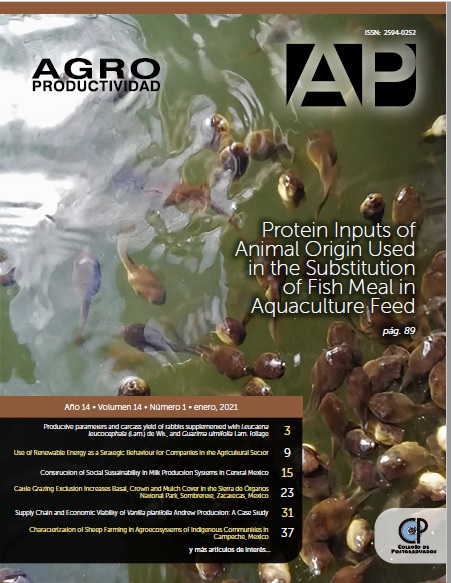Isolation and selection of rhizospheric bacteria with biofertilizing potential for corn cultivation
Main Article Content
Keywords
sustainable strategies, plant growth, biofertilizer,
Abstract
Objective: isolate and determine at the greenhouse level the biofertilizing potential of rhizospheric bacteria associated with corn in the state of Campeche
Design/methodology/approach: Rhizospheric soils were collected in zones with different management conditions. Bacterial strain were isolated from these samples and their biofertilizing potential was determined by in vitro and in vivo The data obtained in both tests were analyzed by analysis of variance (ANOVA) and a means comparison test (LSD, p? 0.01).
Results: In total 16 rhizospheric bacteria were isolated, a greater number of strains in non-mechanized soils (n=10) compared to mechanized soils (n=6). In in vitro tests, the most representative activity corresponded to nitrogen fixation (81%) attributed to a higher percentage of bacteria, while the activity with a lower number of bacteria corresponded to the production IAA (25%). In in vivo tests in corn plants, theYM1 strain presented the highest fresh and dry root weight (20.00 and 2.00 g plant-1), the YM4 strain the highest height (63.33 cm), and YM5 the highest values in diameter stem (7.13 mm), root lenght (36.78 cm) and fresh weigh of the stem (12.03 g plant-1)
Limitations on study/implications: Strain evaluation is limited to controlled greenhouse conditions.
Findings/conclusions: The YM1, YM4 and YM5 strains show potential to be evaluated in the future as biofertilizers in the cultivation of corn in the field

